From Russia to Matchmaker: A Surprising Journey
Miriam Gilvich grew up without any knowledge of Judaism until she moved to Israel and embarked on a spiritual journey. Surprisingly, she found her calling as a matchmaker specializing in complex matches. "It's the greatest satisfaction there is," she shares.
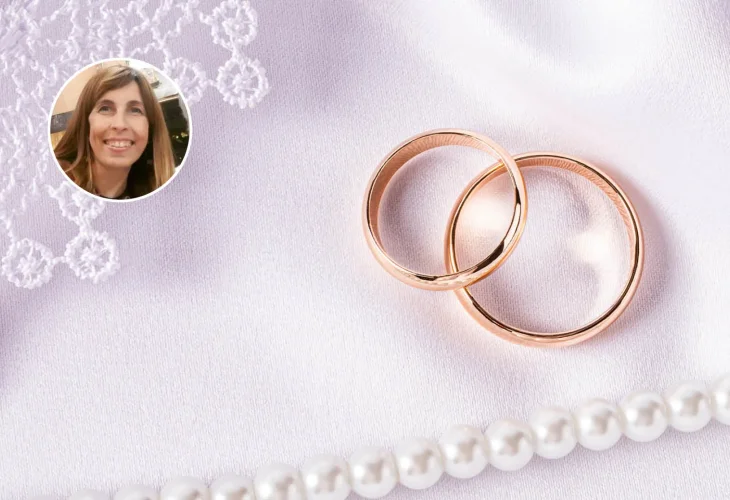 (Photo: shutterstock)
(Photo: shutterstock)If you had told young Miriam Gilvich, growing up in Russia, that one day she would live in Israel, lead a religious family, and work as a matchmaker, she probably would have looked at you in surprise and disbelief. Phrases like "religious" and "matchmaking" were completely foreign to her, and Israel was only a distant name she had heard. She never imagined she would one day walk on its soil.
But like in the most captivating stories, unforeseen developments led Miriam to a drastic life change, transforming her world in ways she never could have anticipated.
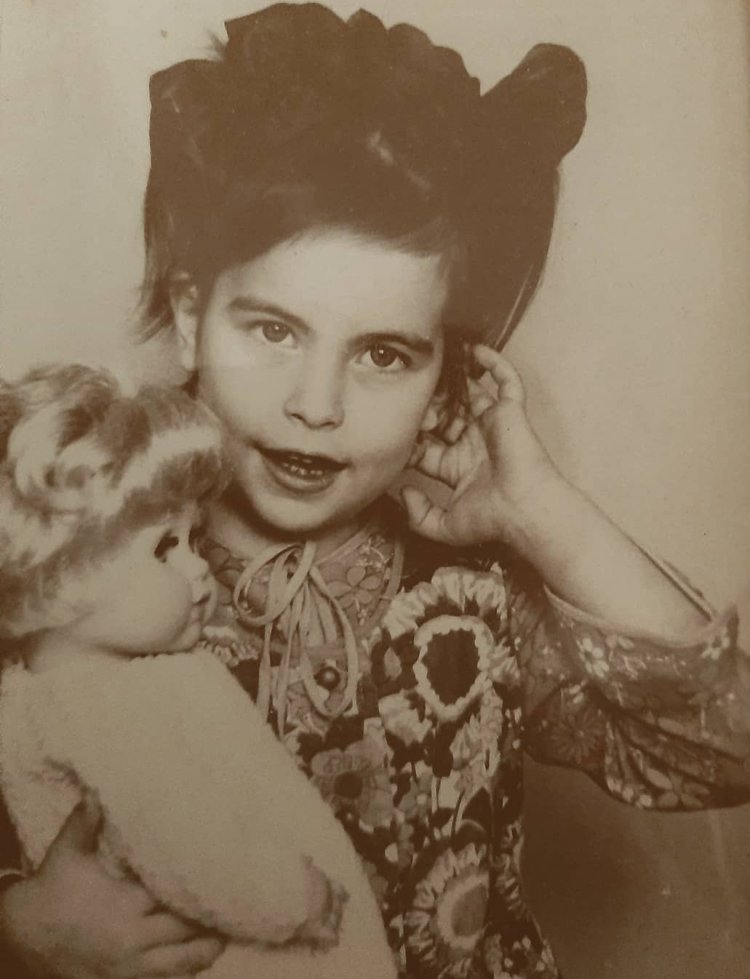 Miriam Gilvich as a young child
Miriam Gilvich as a young child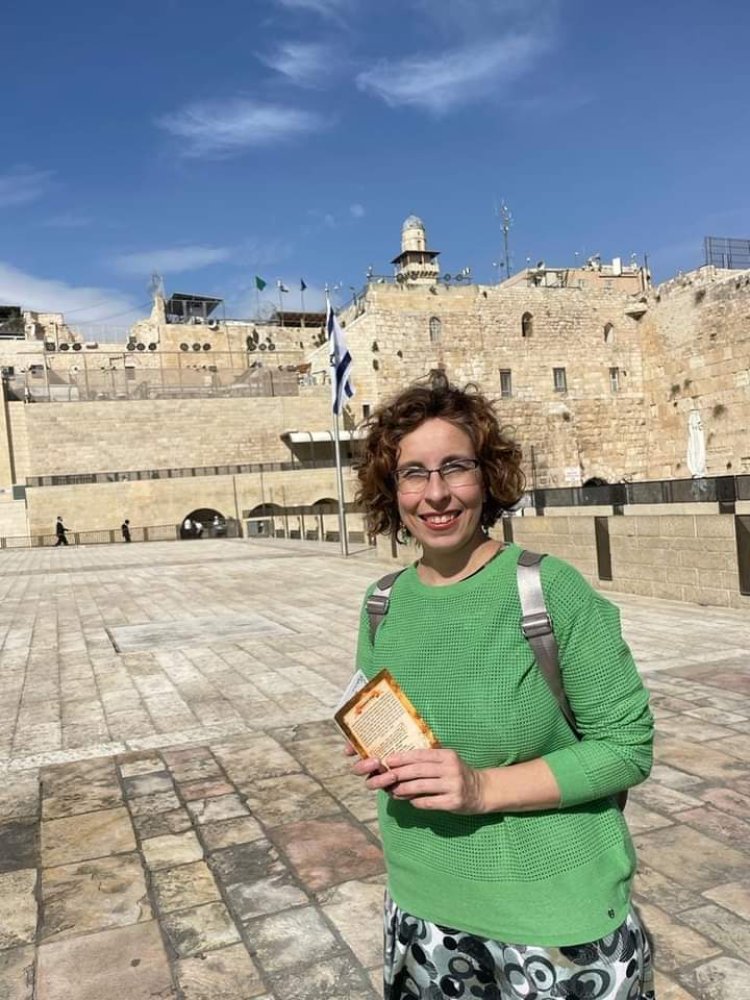
![Miriam at her wedding]() Miriam at her wedding
Miriam at her wedding
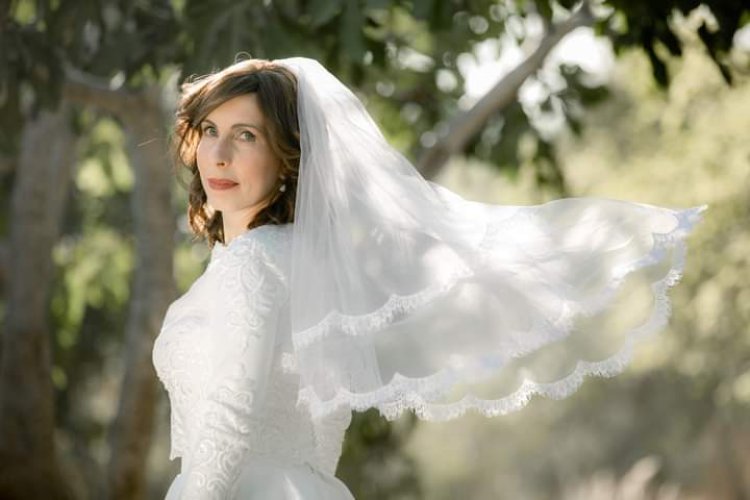 Miriam at her wedding
Miriam at her weddingFrom Russia to Israel
Miriam was born in Kazan, the capital of the Tatar Republic in Russia, a city known to many due to Rabbi Yitzhak Zilber, of blessed memory. "I grew up in a non-religious Jewish family," she says. "My mother was a proud Jew and even prayed by heart. She always told us about our roots and the rabbis in our grandfather's family. She had a notebook where our family lineage was recorded for generations, noting what happened to each one—who perished in the Holocaust, who in pogroms, and so forth. From this notebook, I understood that our family had believers for generations. But I grew up without religious influence, and many aspects of Judaism were unknown to me for years, even after moving to Israel and becoming more observant."
Miriam immigrated to Israel in the late 1990s, already married with two children—twins. "We lived in Jerusalem, in one of the neighborhoods, and I naturally encountered Judaism, but I never felt it was personally relevant or obligatory," she explains.
Yet they began to undergo a process that led to a decision: they wanted to have their children circumcised. "We didn't have the chance to enter them into the covenant of Abraham our Father at eight days old in Russia, so we decided to do it at one year and two months, at the neighborhood synagogue," Miriam explains. "Everyone from the block attended the event to see toddlers who could already walk and ride bikes being circumcised. It was moving and rare, making me feel tangibly Hashem was with us."
"As the children grew, someone suggested sending them to a religious kindergarten. They explained how convenient it was—no strikes, no protests, the kindergarten provided hot meals, and even taught the Aleph-Bet at a young age. It appealed to me, so I sent the children to a religious kindergarten and saw how it influenced our whole family life. They were educated not just in commandments, but also in values, behavior, and respect, which we felt as a family."
Miriam notes that outwardly their lives continued normally, with work, studies, and raising the children. "It might sound odd," she says, "but even though we lived among religious families, we lacked basic concepts, and I remember going outside on Yom Kippur, seeing people in white clothes walking to synagogue, and innocently asking a neighbor, 'What is this day? Why aren't people eating or drinking?' She explained it to me, and I decided I wanted to join in—I fasted and tried to pray, but I didn't know what or why. Then Chanukah came, and every day I added another candle to the window. I thought that's how you made a menorah. When Passover came, the kids told me they needed to bring matzah to kindergarten, so we bought matzah and sent it with them because they wanted to. To me, it was like bringing notebooks and a pencil case to school, not understanding the deeper meaning."
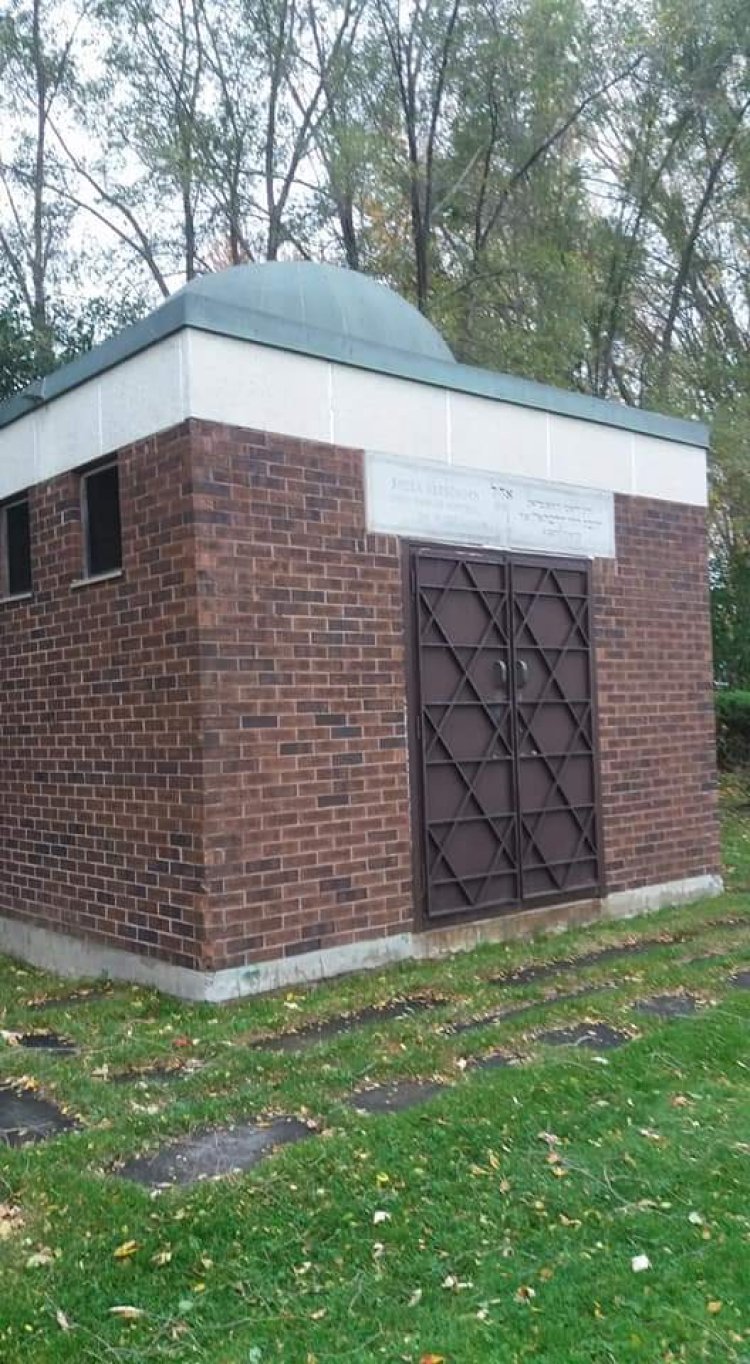 Grave in Montreal, 'Shiloh' Cemetery, of the brother of Miriam's great-grandfather Rabbi Yehoshua Halevi Hirshhorn.
Grave in Montreal, 'Shiloh' Cemetery, of the brother of Miriam's great-grandfather Rabbi Yehoshua Halevi Hirshhorn.![]() Missed Opportunities, Shame, and Awakening
Missed Opportunities, Shame, and Awakening
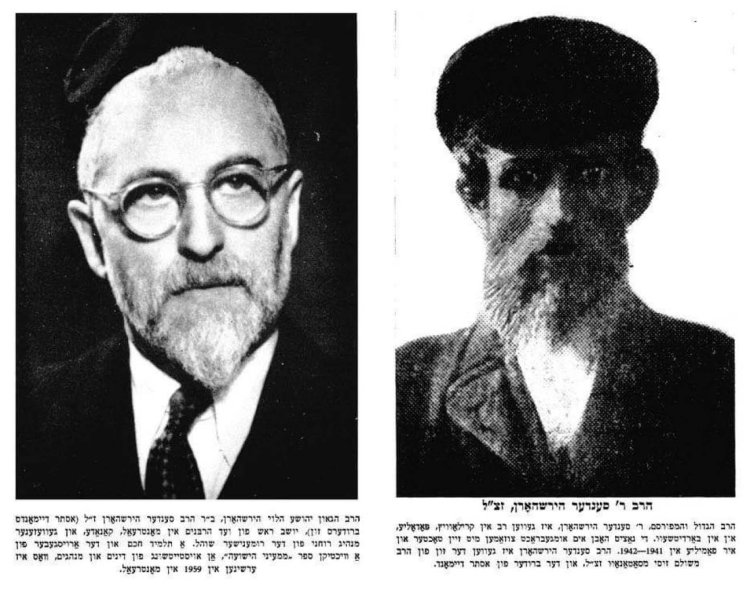
One day, there was a knock on Miriam's door. Two women with a religious appearance asked to come in and talk. To this day, Miriam can't explain why she agreed to let them in. "We sat and talked," she recalls. "They told me about the family purity laws and convinced me to start observing them. It wasn't immediate, but something took root in my heart."
The true awakening came at age 35. "It was after years of living in Jerusalem, celebrating bar mitzvahs for the boys, and seeing many families observing commandments around us. During this time, my mother immigrated to Israel. Since she lit candles on Friday night, I sometimes did too. My mother, always connected to Judaism, started attending a regular Torah class and would come back glowing, telling me how empowered it made her feel."
"I decided to join her, and quickly understood what she meant. The class not only gave strength but was refreshing. I still remember the teacher's name and the Midrash stories on the weekly Torah portion. One topic she often spoke on was the importance of lighting Shabbat candles, emphasizing you could ask for anything then. She introduced me to the concept of a specific time for candle lighting and that if it passed, you mustn't light."
"Since then, I tried every week to light Shabbat candles, and I felt very connected to the mitzvah. I remember one Friday when I was out with the kids in Herzliya, and on the way back, I noticed the candle lighting time was passing. The feeling of shame and missed opportunity still lingers. These were moments of profound awakening, after which I resolved to observe candle lighting on time and honor Shabbat. Then I also strengthened in other areas. At some point, I separated from my husband, and we each went our ways, with me continuing to raise the children and imparting my aspirations to them."
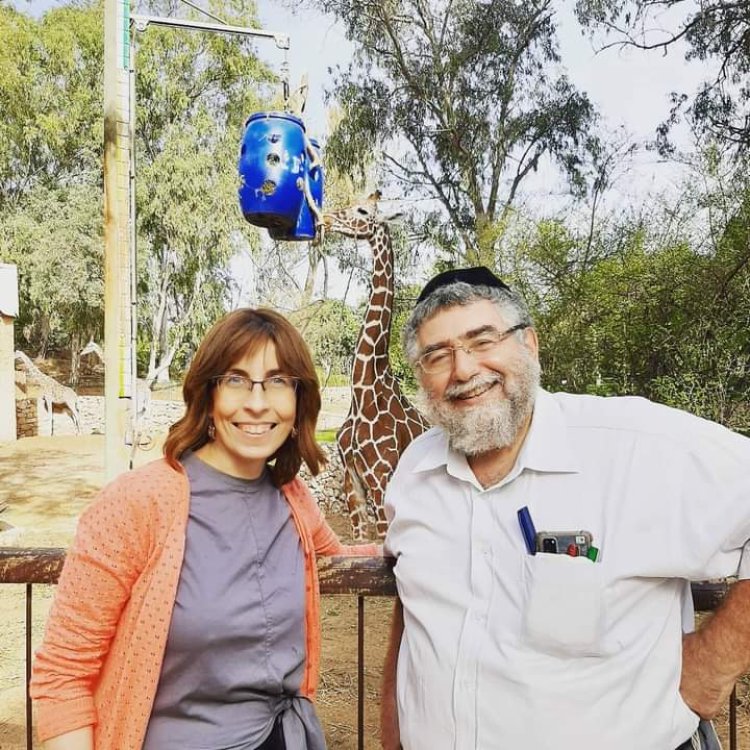 Miriam with her husband
Miriam with her husbandMiriam was clear she wanted to rebuild her home, but when she met a young man, he surprised her with probing questions right from the first meeting: "Do you believe in the Creator?" "Do you observe mitzvot?" and so on.
"I simply told him I believed in my heart but didn't want to be tested. I assumed he would dismiss it, but he surprised me. We were sitting outside a café table when he suggested, 'Let's go inside to warm up.' Once inside, he removed his cap, revealing a kippah. He explained he had undergone a conversion and was now studying in a yeshiva. For a long hour, he shared his life story—the conversion and his choice to join the Jewish people. It shook me. I thought about how he underwent so many transformations, driven by a relentless desire to live as a Jew, while I, born a Jew, wasn’t living that way. Although I didn’t marry him, it ignited a warm feeling toward Judaism within me."
Miriam pauses for a moment, wanting to share her work at the time: "I was a producer at an international Russian-language TV channel. I had to be available 24/7, including Fridays and Shabbat. Initially, it was very challenging—how to continue the job while observing Shabbat without answering calls? Fortunately, around that time, I met Rabbi Ben Porat from Bayit Vegan. I listened to his classes and thanks to him, continued learning at a seminary. Soon, I took out all my immodest clothes and changed significantly outwardly. The classes and spiritual growth not only convinced me that I could succeed without working on Shabbat but also raised the question in me: 'How was this hidden from me? How did no one tell me about this amazing Judaism?'"
"I continued meeting men, now being offered those who observed mitzvot too, and wondered—if all matchmakers can propose so many matches, why can't I do it too? Additionally, I heard a segula for finding a match—'if you want a match for yourself, make one for someone else.'"
"So, even before I got married, I started dabbling in matchmaking. Ultimately, I didn't meet my husband through a professional matchmaker, but through people who introduced us, enabling us to build our home with Hashem's help, united in our desire to bring joy to our Creator."
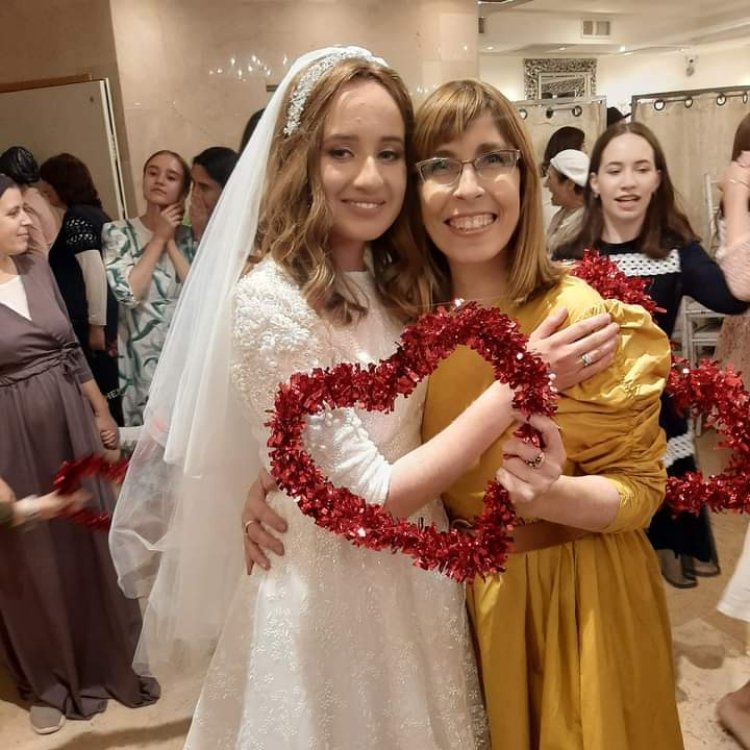 Miriam at one of the weddings she matched
Miriam at one of the weddings she matched![With one of the couples she matched]() With one of the couples she matched
With one of the couples she matched
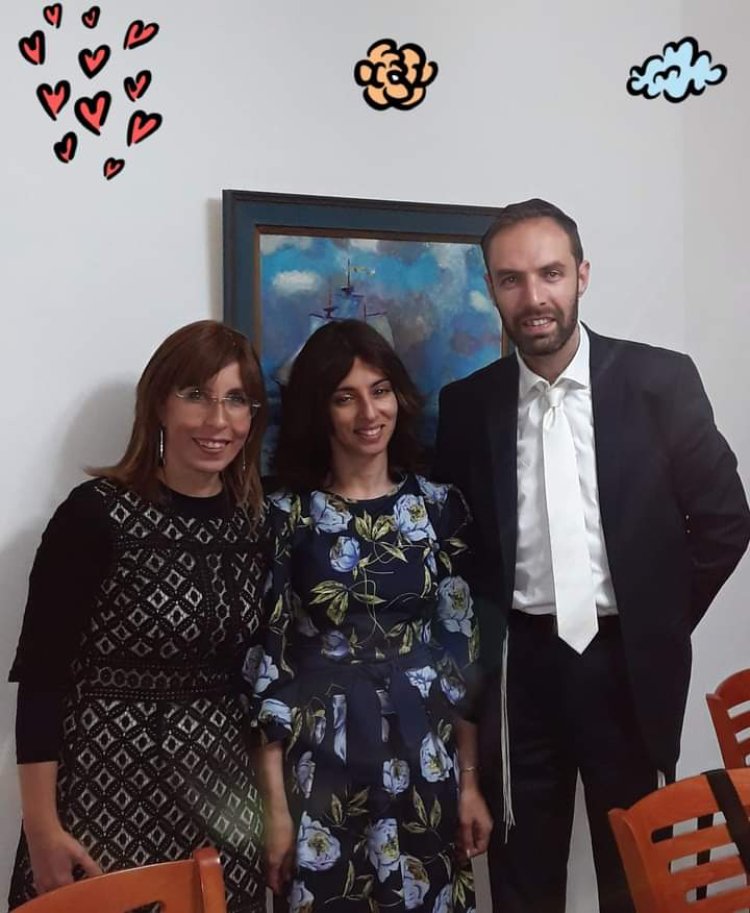 With one of the couples she matched
With one of the couples she matchedSecrets of the Jewish Home
Since those days, another career path joined Miriam's life: matchmaking. "I decided to focus on a specific sector—returnees to Judaism or converts, and challenging matches like second, third, and even fourth marriages, understanding that naturally, they receive fewer proposals compared to others," she explains.
Since then, Miriam has met hundreds of singles, while also studying Jewish personal coaching in the Bnei Gal method, specializing for employment and matchmaking. Alongside this, she continues to work as a producer at 'Kan' Radio's Russian-language channel.
Is there a connection between your two professions?
"Yes, definitely. The essence of production work is to find the right person for the broadcast and connect them to the program being produced. Likewise, matchmaking aims to connect two people and find the suitable partner."
The fastest match Miriam ever made happened in just ten minutes. "A young man came from Bnei Brak to register with me," she recalls. "We met at a hotel in Jerusalem, and I took his details. He was a bit disappointed I couldn't offer someone immediately, but I promised to think about it. After we parted, he traveled back to Bnei Brak, and I left the hotel headed home. As I crossed the street, I met a girl at a traffic light whom I knew was looking for a match, and suddenly an idea struck—maybe she would fit him? When I asked her if the idea might be relevant, she answered positively. That same day, I contacted the young man and set up a meeting. Both were returnees to Judaism searching for a match for a long time, and apparently, the match was perfect—it only took three meetings for them to decide to marry. It was the quickest match I led, and today they are, blessedly, parents to a sweet child."
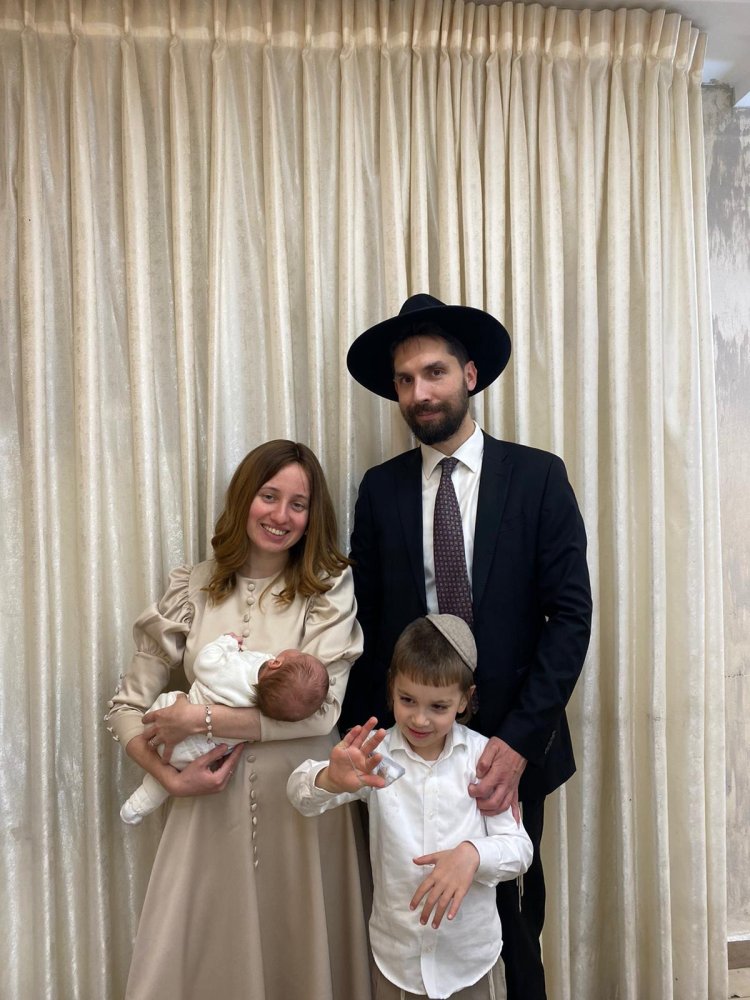 The couple whose match happened in ten minutes
The couple whose match happened in ten minutesShe also has touching stories about matches for older adults: "The oldest person I married was sixty-four, and I also facilitated several third and fourth marriages that resulted in wonderful homes and great happiness."
Everyone knows it's much easier to match a young, fresh couple than returnees to Judaism, divorced or older individuals. Why go into such a complex field?
"Because it gives me tremendous satisfaction. Imagine helping a 38-year-old bachelor marry and seeing his entire family dance joyously, or marrying an older couple and having the husband tell you a year later that at forty-five, he's welcoming a son into Abraham's covenant for the first time. Or helping a divorced fifty-year-old find the right match after years of searching. True, these matches aren't easy, and among the hundreds of meetings I arrange yearly, only a few result in matches. But Hashem gives strength, and it's a mission."
Miriam mentions that as she works in production with a secular public that sometimes undergoes tough marital crises, colleagues frequently ask her, "How does it happen that your guys meet a few times and decide on a match, which often lasts longer than ours?" "I always explain the truth," she says. "Hashem gave us a book of instructions on family purity and harmony. When you follow the book, you achieve a deep, meaningful relationship, and that's how it looks in the end."
Miriam also has a straightforward message she wishes to convey: "No matter your age, background, or past—never give up. Matches happen in miraculous, wondrous ways, and as a matchmaker, I can testify that I see and feel Hashem's presence every day anew. Sometimes it comes in the most unexpected way, at a time you didn't think it would happen, but Hashem decides, and it just happens. Personally, since becoming a matchmaker, my faith has grown greatly. I know Hashem doesn't give up on any of us; we just need to open up the opportunity and never hinder, G-d forbid, a match."

